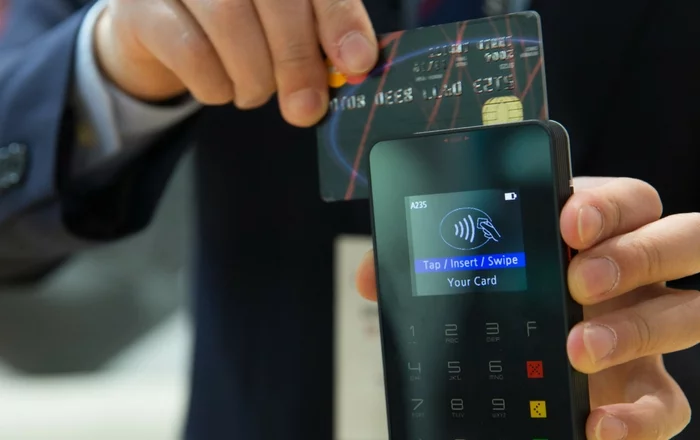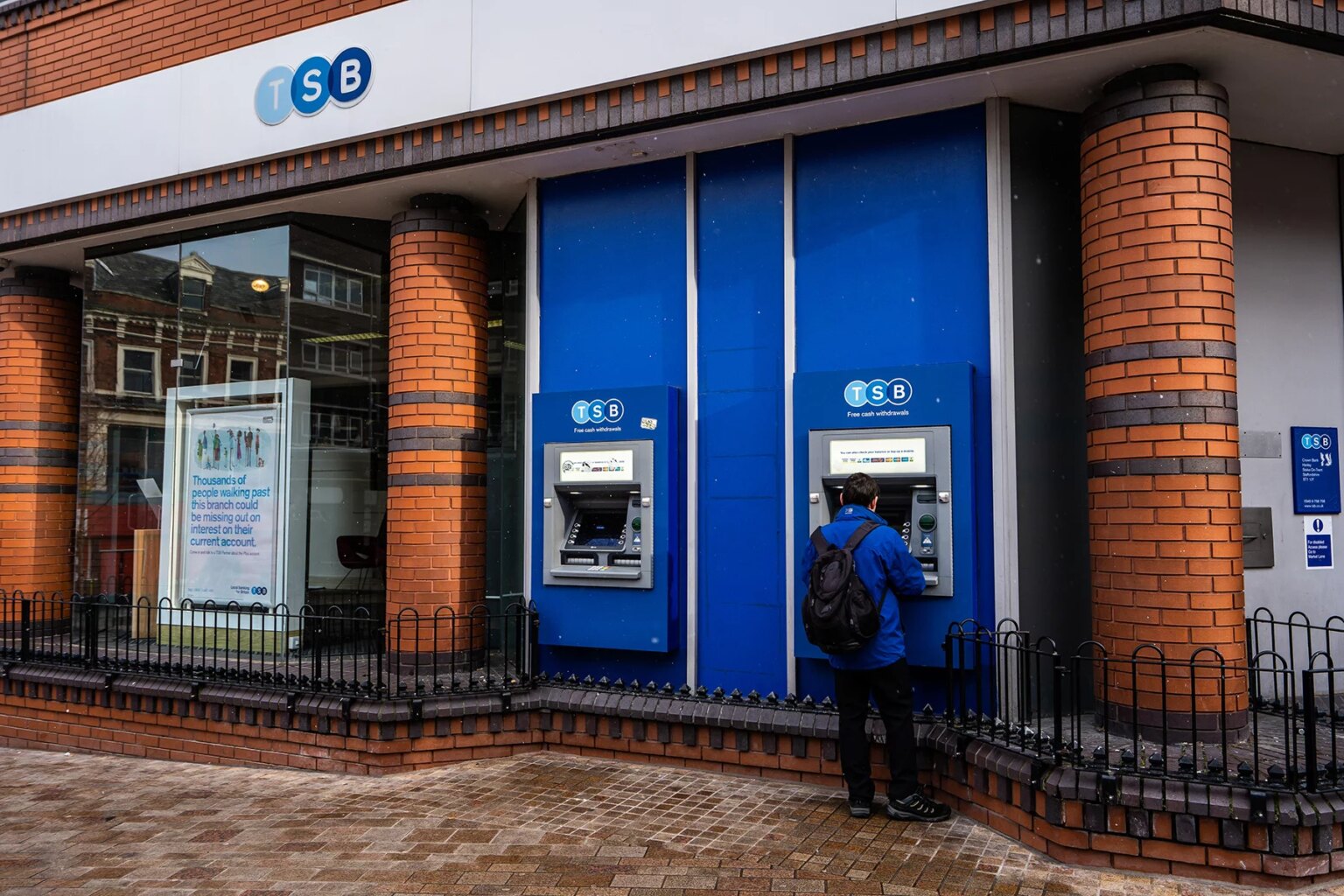When moving to the UK, make sure your money is in the right hands by opening the right bank account for you. Whether you’re working, studying, or retiring to the UK, there is a range of options on the market.
To help you out, this guide to opening a bank account in the UK covers the following topics:
- Banking in the UK
- Do you need a bank account in the UK?
- Before you open a bank account in the UK
- Types of bank account in the UK
- What the different banks offer in the UK
- Choosing a bank account in the UK
- How to open a bank account in the UK as an expat
- Banking services in the UK
- Managing your bank account in the UK
- Changing banks or closing a bank account in the UK
- Useful resources
Wise
Do your finances go beyond borders? Then you need a fast and secure way to move money internationally. Wise is a global leader in online international money transfers, letting you move money at an exchange rate several times cheaper than your bank. Whatever your personal or business needs, Wise can make your money go further.
Banking in the UK
The UK is considered one of the global financial centers and its financial services sector consists of private UK banks, international banks, and publicly owned lending institutions such as building societies and credit unions. There are currently 344 banks across the UK. The state-owned Bank of England is the central bank of the UK and the banking sector is regulated by the Financial Conduct Authority (FCA). See our guide to banking in the UK for more information.
Do you need a bank account in the UK?
It is not a legal requirement to have a bank account in the UK and not all British residents have one. There are alternative money management options in the UK such as building societies, credit unions, and National Savings and Investment accounts (formerly Post Office Savings accounts).
However, opening a bank account in the UK will make your move a lot easier. You’ll likely need one when it comes to things such as paying UK utility bills and it may be a requirement with some lenders if you want to get a mortgage in the UK. There are several banks that offer basic accounts that can be opened even if you have bad credit, so it’s definitely worth considering opening an account with a UK bank.
Before you open a bank account in the UK
Before you open a UK account, you can manage your finances from an overseas account if you have debit or credit cards that can be used abroad. However, be aware that you may incur costs such as transaction fees and currency exchange fees.
There are a couple of options to set things up before you move to the UK. Your home bank may be able to help open a bank account in the UK for you if it has a correspondent banking relationship with a UK bank (you’ll need to ask if this is the case).
Alternatively, many UK banks have international accounts for non-residents that can be opened up from abroad, so you could open an account in advance of your move. Some banks charge monthly fees for these accounts, though, so check first and don’t open an account months in advance of moving if it will mean hefty charges.
Types of bank account in the UK
If you want to open a bank account in the UK, there are different types to choose from so you can select what is most suited to your needs. The main types of bank account in the UK are:
Current account
This is the standard and most common form of bank account which you can use for everyday needs such as paying bills, shopping and receiving wage payments. Current accounts are available for free or low cost (premium accounts will be more), they come with a debit card and usually have options such as credit cards and overdraft facilities. Most banks offer special versions of these accounts for groups such as students and young people.
Basic account
Many UK banks offer free basic accounts for people with poor credit or who are struggling to open a current account. These accounts offer basic products and services such as Visa Electron debit cards and direct debit payment options but you won’t have access to credit cards, loans or overdrafts. If you open a basic account and your personal situation changes, you can usually upgrade to a current account if you pass the credit check requirements.
Savings account
Most banks have a range of savings and investment options that start with basic savings accounts. These accounts offer a higher interest rate but may require minimum deposits and stipulate that money needs to remain in the account for a minimum period, depending on the account type. You’ll also find saving accounts available at building societies and friendly societies, such as Shepherds Friendly.
International or non-resident account
Many of the major UK banks offer international current accounts that you can open and operate from overseas.
Digital or mobile account
All of the main UK banks now offer their services online and via mobile banking apps, so you can choose to run your bank account remotely. There are also online-only and mobile-only banks in the UK. See our guide to mobile banking in the UK for more information.
Joint accounts
You can also open a bank account in the UK jointly with other people. This is commonly done between married couples and people living together in a long-term relationship.
Offshore accounts
Expats living in the UK may find that opening an international offshore bank account is the best way to manage their finances. It is possible to open an international offshore account in the UK while working or being based overseas. Offshore accounts are available in GPB, EUR, and USD and usually require larger deposits than standard bank accounts. They offer certain advantages over domestic banks such as favorable tax arrangements.
What the different banks offer in the UK
If you are an expat looking to open a bank account in the UK, you can shop around the many different UK banks to find the best deal for you. Here is what some of the major UK banks have to offer.
Barclays
One of the biggest and most well-established banks in the UK, Barclays offers a full range of financial services for both individuals and businesses. It offers three free standard current accounts – an everyday current account, a basic account, and a premium account – plus student accounts, accounts for children and young people, an account for international students, and a foreign currency account available in 12 different currencies. There is a range of online and mobile banking options to choose from and you can also customize your account for a fee of between £6-18 a month, choosing from packages such as the tech pack and the travel pack. For savers, there is a portfolio of savings accounts, ISA accounts, and other investment options.
HSBC
Another one of the UK’s big four multinational banks, HSBC has branches in over 80 countries and is a popular choice with expats due to its global reach. In addition to a wide array of borrowing, investing, mortgage and insurance options, there are eight free current accounts to choose from. These range from the basic account with a £300 a day cash withdrawal limit to the premier account with perks including worldwide travel insurance. There are also accounts for children, students, and graduates. There are also nine savings account including a children’s saver, a help-to-buy savings account for those saving for their first home, and a tax-free cash ISA. International services include a free foreign currency account available in 14 currencies, an overseas non-resident account available in 37 countries, and low-cost international payment options. Mobile banking is available through the HSBC app which can be downloaded from the website.
Lloyds
Lloyds is the largest retail bank in the UK. It offers eight standard current accounts. The basic account, classic account, student account and under-19s account are all free. There are also platinum account options with insurance benefits and credit interest offerings for £19 a month. There are also two international accounts for non-residents and those needing access to overseas markets. These offer free international money transfers, but you need to have a minimum annual income of £25,000 to open an account. There is a range of savings account to choose from, including 12 local savings accounts and 4 international multi-currency savings accounts.
Metro Bank
This is a smaller, newer UK bank opened in 2010 and with 67 branches across the country. The selling point of Metro Bank is its ease of access, with branches open 7 days a week and no appointments needed to see an adviser. The account range, however, is more limited. There is a standard current account which is free and available to UK residents, with benefits including free cash withdrawals overseas. Basic cash accounts are also available. This have withdrawal limits set at £300 a day. There are also four savings account options which include instant access and fixed term savings and cash ISAs.

You can see more UK banks detailed in our guide to banking in the UK.
International banks
If you don’t want to open a bank account in the UK with a British bank, there are several big international banks to choose from. These will offer similar services and products to UK banks. International banks in the UK include:
- Bank of America
- Citibank
- Santander
- Triodos Bank
Online and mobile banks
Several online-only and mobile-only bank accounts are also now available to UK customers. These banks tend to have a more limited range of accounts, products and services than bigger high street banks, but they are more flexible and often cheaper options. Online and mobile banks available in the UK include:
- Revolut
- Monzo
- Suits Me – although not a bank, this service offers online money accounts with many features of traditional banking.
See our guide to digital banking in the UK and read our article on mobile banking safety.
Building societies
Building societies are a financial alternative to high-street banks in the UK. More commonly used for savings accounts and mortgages, some of them operate in a very similar way to banks and offer similar products and services. The biggest building society in the UK is Nationwide, which offers six current accounts in addition to its wide range of savings options. Most of the accounts are free to operate, including the FlexAccount, the FlexDirect online account, student account, young person’s account and basic account. Current accounts are also available to residents of EU/EEA countries.
Choosing a bank account in the UK
If you are looking to open a bank account in the UK, which account you opt for will depend on your own personal circumstances and what you are looking for. There are various factors you might want to take into consideration, such as:
- Costs – many of the UK accounts are free of monthly fees but there may be additional charges for certain services or add-ons, as well as a trade-off in terms of range of services available
- International scope – if you want an account that will be well-linked to accounts and services overseas, you’ll need to check international and multi-currency account options as well as services such as international money transfers
- Range of products and services – this can range from account-related services such as credit and borrowing options to other financial services including UK mortgages, insurance in the UK, and investments
- Flexibility – if you’re looking for ease of access and 24/7 banking, digital and mobile accounts are well worth considering
- Incentives – many banks will try to attract customers by offering incentives such as cash deposits or interest-free periods, so shop around to see what’s available
You can compare account fees and charges through the Money Advice Service website, and there are many comparison tools such as MoneySuperMarket and Compare the Market which enable you to compare various different current account features.
How to open a bank account in the UK as an expat
Once you are in the UK, you can open a bank account at a branch or online. You will usually need a UK address when applying unless you already bank with an international provider that has UK coverage. Banks usually require you to fill out an application form and undergo a credit check (unless opening a basic account) when applying. Each individual bank will have its own list of required documents. You will need to prove your identity and your address in order to open a bank account in the UK.
Most banks are likely to ask for:
- Passport/valid photo ID
- A recent utility bill (less than three months old) or council tax bill
- A recent bank or credit card statement
- Proof of studying in the UK (if applying for a student account)
- Proof of employment (some banks may ask for this)
Many standard bank accounts in the UK can be opened within 1-2 days.
How to open a bank account in the UK from abroad
Some UK banks, such as Barclays and HSBC, offer international bank accounts which can be opened overseas in advance of moving to the UK. Exact processes will vary from bank to bank, but the length of time to open the account can be a bit longer than if you open one in the UK (sometimes around 10-15 days). You might be able to open the account online, otherwise you will need to make an appointment with the bank branch closest to where you live in your home country. Documents you will need to provide include passport/ID, proof of address, and proof of income – some overseas accounts require minimum monthly deposits too. You may also need to provide other documentation such as visa information if you are living in a non-EU/EFTA country.
How to open a digital or mobile bank account in the UK
Many UK banks now allow you to open up an account online or from your smartphone. You will usually need to provide online scans of documentation such as your passport and proof of address. Some online-only and mobile-only banks allow you to open an account while providing just your email address, mobile phone number, and valid ID. See our guide to mobile banking in the UK for more information.
How to open a business bank account in the UK
If you are starting a business in the UK, you can set up business banking with any of the major banks. Freelancers and unlimited sole traders/partnerships usually have to provide a passport/ID for all partners, proof of personal addresses, as well as a business address. Limited companies also usually need to provide a Companies House registration number, and details of all directors and estimated annual turnover.
All those involved in the running of the business usually need to undergo a credit check too. Most UK banks offering business banking have a business manager or business-dedicated member of staff. They will usually want to meet you to discuss opening the business account, what your business goals are, and what you expect from the account. You might be encouraged to draw up a business plan or budgeting forecast for them to have a look at. This will be a requirement if you plan to ask the bank for a loan at any point.
How to open a bank account in the UK for your children
Children can legally open their own bank account in the UK from the age of 11 (although some accounts have a higher minimum age) but parents can open an account for their children at any time. Different banks offer different accounts with varying age specifications, and the process and requirements for opening the account will vary.
In general, it’s easier if you attend the bank along with your child and open the account, although it’s possible with many banks to open an account in the child’s absence, as long as you have the right documentation. You can open a bank account in the UK with some banks online. You will usually need to provide a passport/ID and proof of address for your child. If you don’t have an account at the bank yourself, you will normally have to provide a passport/ID and proof of address for yourself too.
What to do if your application to open a bank account in the UK is refused
Banks in the UK can refuse to open an account for someone on a number of different grounds, the most common ones being failed credit checks or not providing sufficient ID or proof of address. Banks in the UK are not obliged to give reasons for refusing an account.

If you feel you have been discriminated against because of your ethnicity, gender, disability, sexuality, age or religion, you can make a complaint to the Financial Ombudsman Service. Disputes normally take between 8-12 weeks to resolve. If you are not happy with the conclusion reached by the Ombudsman, you can take the case to court, although you will normally have to cover your own legal fees.
Banking services in the UK
As with banks in many other countries, UK banks provide a range of services beyond accounts, credit cards, lending options and money transfers. These include:
- Insurance plans in the UK, including areas such as home insurance and car insurance
- Investment options such as funds, bonds, and shares
- Mortgages in the UK
- Pension plans in the UK
International money transfers in the UK
For international money transfers, there are alternative solutions to banks which could prove cheaper and more convenient, such as:
Managing your bank account in the UK
When you open a bank account in the UK, you have the option of choosing how you manage your account. UK banks offer their services in the following ways:
- Face-to-face banking – with around 20,000 bank branches still operating in the UK, banks still offer plenty of personal services. However, they have decreased in visibility on high streets in recent years. You can still make payments, apply for products and services or make an appointment with a bank adviser at a bank branch in the UK.
- Online banking – more and more people are choosing to do their banking remotely today. All the major banks have sophisticated websites where you can access your account, manage your money, find out information, and apply for products at any time of day. See our guide to digital banking in the UK for more information;
- Mobile banking – Most traditional banks have a banking app. There is also a growing number of online and mobile-only banks. Read more in our guide to mobile banking in the UK.
Changing banks or closing a bank account in the UK
You can switch current accounts to other banking providers in the UK using the Current Account Switch Service. The majority of UK banks are signed up to this scheme. The service handles payments from your old account to your new account. These may include direct debits, standing orders, and salary payments. You can even switch accounts if you have an outstanding overdraft, as long as both banks agree. The switch service takes around seven working days.
You can also close most UK bank accounts at any time without being penalized, as long as you didn’t open an account that stipulated a minimum usage period as part of an offer. If you close an account when you have an outstanding overdraft, you will have to pay this off first. Loans will normally continue to be paid off at the agreed rate. To close a UK bank account, just get in touch with the bank and let them know. You may have to fill out and sign a short closing order form.
Make sure that you:
- Get confirmation in writing from the bank that the account is closed. This way, you can’t be charged any subsequent fees
- Cancel all future payments coming out of the account, such as direct debits and standing orders
- Inform your employer and anyone else likely to make payments into the account that it is no longer active
Useful resources
- Bank of England – the central bank of the UK
- Financial Conduct Authority – the official regulator of the UK banking and financial sector
- Financial Ombudsman – deals with complaints made against banks and financial services
- Direct Debit – automatic payment provider used by many UK customers for regular bill payments
- Current Account Switch Service – takes care of proceedings if you want to switch your account to another provider



